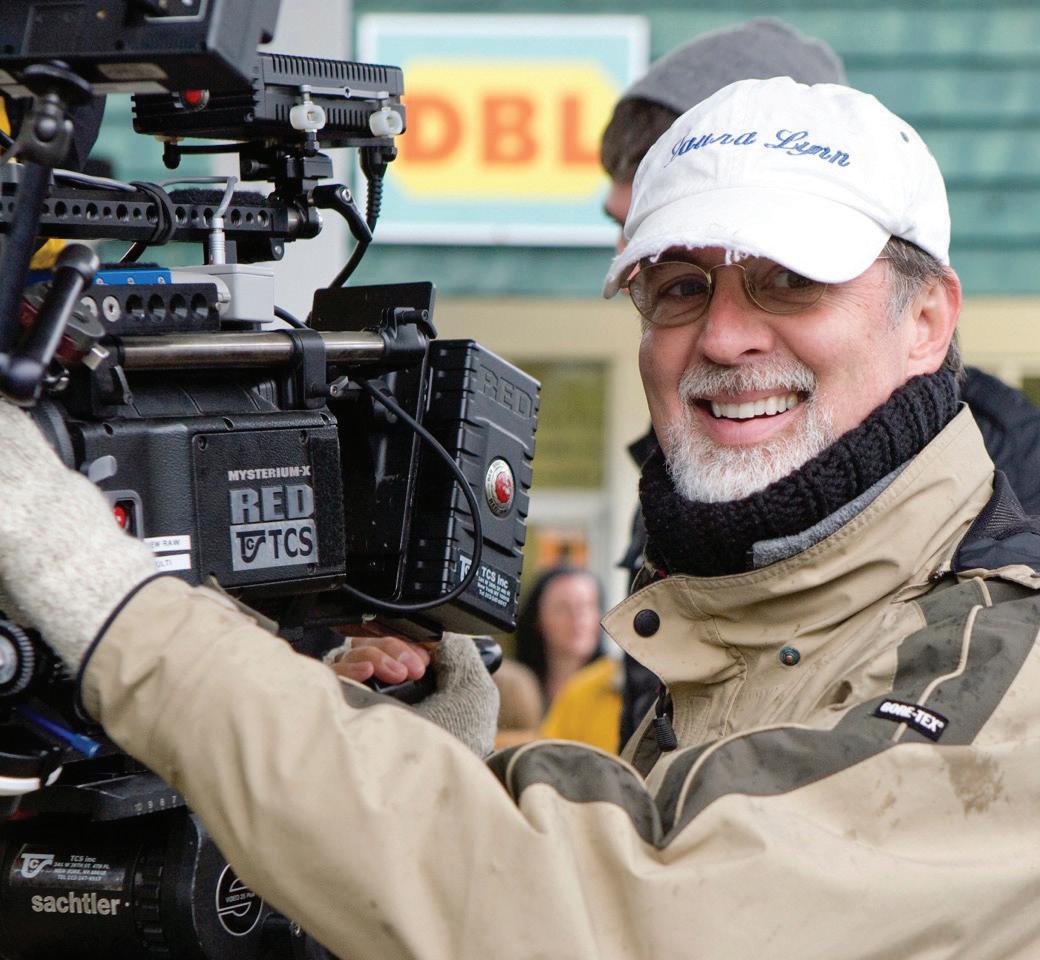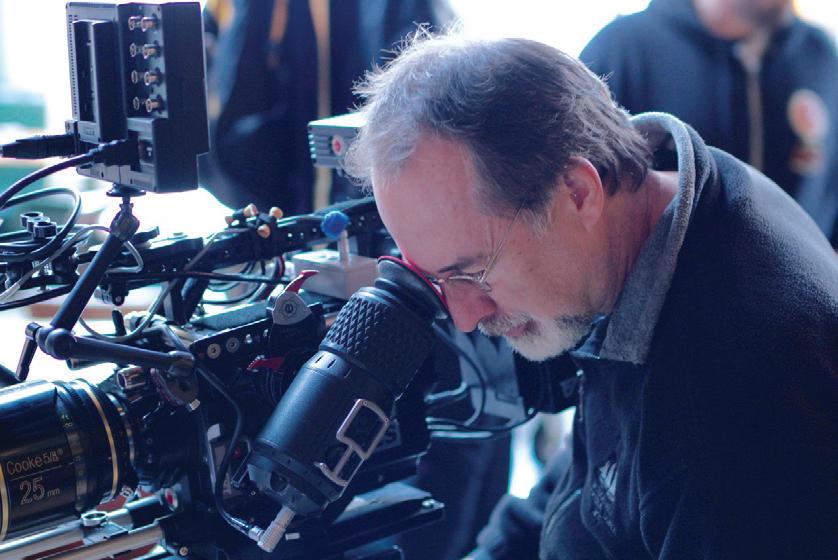
4 minute read
Keeping It Simple: An Interview with Cinematographer Paul Koestner
KEEPING IT SIMPLE: AN INTERVIEW WITH CINEMATOGRAPHER PAUL KOESTNER By Bobby Marko
Cinemotographer Paul Koestner is originally from Kalamazoo, Michigan and now resides in Port Washington, New York with his wife Deb. Paul is known for his work with comedian Louis C.K., as well as his many TV Movies, Documentaries and series based shows such as the new Hulu series "Deadbeat."
Advertisement
Let’s go all the way back to the first project that appears on your IMDB page - Adam Clayton Powell. What can you tell us about working on that project?
Do they have me listed as a cinematographer for that project? I was actually an assistant on that project years ago for an old friend of mine, Dennis Malone. He is still a DP on the West coast. We were doing little projects all the time together and we probable threw an extra camera into an interview.
How do you navigate the quick pace of creating content and the ever-changing world of logistics?
By the seat of my pants! Listen, it’s a real challenge. My projects tend to be smallish and I kind of like that. I think you can be more nimble on small projects. I get really bored on large projects where I sit around and wait four hours to set up a 15 second shot. Bottom line is we are telling stories and we’re being asked to do a lot in a short period of time. Production companies are in the business of making a profit, so we have to do what we can within the constraints of the budget.
Who are some cinematographers that you admire?
Oh, wow! I’m going to have to go back to my graduate days at NYU in the 70’s. Caleb Deschanel, Michael Chapman, and William Fraker. When I think of Chapman I remember seeing "Raging Bull" for the first time and it just blew me away.

What are your thoughts on how cinematographers use technology these days?
Whatever era we find ourselves in at the moment we’re asking those questions and in some ways we’ve been doing that all along. Not too long ago a concern would be what aspect ration are we going to shoot. Maybe you’re planning on doing widescreen, but then you’d have someone say “well, you know, we’re going to letter box this or it will be cropped for that.” We’re doing the same thing now in fighting these new formats. It comes to who is your audience and how are they going to watch it.
Twenty years ago this industry felt very small, I know people all over the world were doing it but it just felt like a small world. When I was in film school you had to have a wad of cash to take it to the next level. Good grief, now with the new iPhone, you have a 4K camera! You could potentially now cheaply produce at your home, a feature that could run up on a giant screen.
As the author of On the Wind and a Prayer, how does writing help you as a cinematographer?
In college I started out with an English degree and for me words meant everything. I love words and I love when they’re well chosen. When you first get a script and read it over, you realize how much you can change a story by removing or changing a scene. That goes a long way as you begin to visualize your work.
Tell us about the gear you’re currently using. What in particular makes it your preference?
I’m temped to say I don’t care! It’s something I feel is very tiresome. Right now I’d list those cameras that are main contenders out of the gate. RED, Alexas, Sony (F55, F5), and Canon (C100, C300, C500). I’m mostly familiar with the RED cameras because Louis C.K. force fed me using them years ago. He actually knew about RED cameras before I did!
I’m not going to be one of those guys who comes in and says that we can’t use a camera system because it’s not what I want. It’ a business, if there is a system that produces great images and can save the production a bundle then I will use it. You want to tell a compelling story and not have to go into bankruptcy!
You’ve done a lot of work with Louis C.K., but aside from the TV show, you’ve shot many of his specials. Do you try to capture something different about him and his performance in each, or is it more about maintaining consistence?
Not really. Obviously there are some fundamentally different challenges that go into one of his specials versus his television show. Either way I always try to talk to Louis and find out what he wants and what he’s trying to do.

Louie seems to maintain almost total control over every aspect of the TV show, how much of the camera decisions does he leave up to you?
Not much. Like I said, he was the one that wanted to shoot with the RED cameras. The first time we shot with RED cameras was at the Pabst Theater in Milwaukee. I knew they would be a challenge because they were very new and there was not much support for them. We were sourcing gear from all over the country to do the job. But Louis really wanted them so I figured it out and we went with it.
Any new projects on the horizon for you?
I’m going back for season three of "Deadbeat." I was able to shoot the last season. I’m not a VFX guy and it was a challenge to be working on a location with a lot of green screen material.

Bobby Marko (@MarkoVisual), is an award winning filmmaker based in Nashville, TN. A retired professional musician turned filmmaker, Bobby has covered the world of film and video, from live production and chroma key capture to short films and feature length documentaries. He’s had published articles at Cannes Film Festival and has been a featured presenter at IBC in Amsterdam. Bobby’s passion is to capture the heart of a story through moving imagery and share his experience along the way. You can catch his podcast show on iTunes and Soundcloud, the Authentic Filmmaking Podcast.



